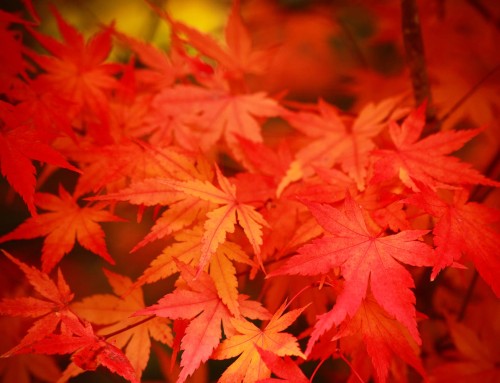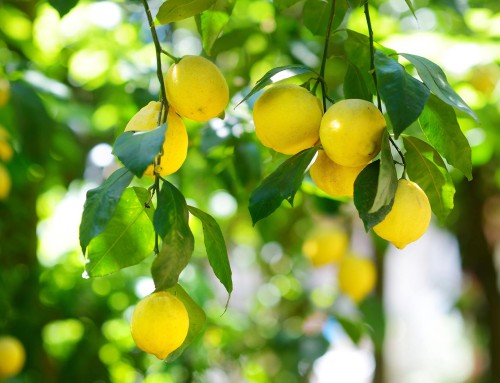Blissful Sleep for Better Health with Ayurveda
(video + transcript)
Peter Brown: Why do we sleep at night?
Dr Donn Brennan: It’s fascinating what is now coming to be known about sleep. The last 20 years has seen immense progress because of the amazing instruments that have now been developed which can follow the activities of the brain during the process of sleeping.
You need more sleep that you realise
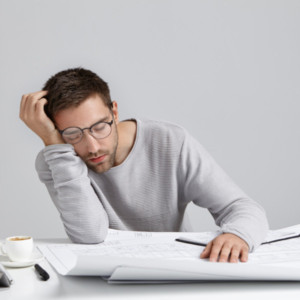
In truth, we need more sleep than we think we need. All the research is pointing to a minimum of eight hours sleep that people actually need for the work that the brain needs to do overnight to be accomplished. Less sleep leaves us less capable, even if we don’t know it.
Even an hour’s lack of sleep [each night] over a 10-day period leaves us as incompetent and incapable cognitively, as if we had missed a whole night’s sleep for one night. The only difference is we don’t recognise it. We don’t know it.
It takes eight hours for the system to totally shut down overnight, and if we don’t have the full eight hours, we never totally switch off our sympathetic nervous system, which is the one for fight and flight and wear and tear. Therefore, we wear ourselves out prematurely because the body never gets relief from that system. With eight hours of sleep it is switched off.
This is considered to be one of the reasons why the lack of a full night’s sleep contributes to such common and devastating conditions as heart disease, strokes and diabetes, and now the great plague to hit mankind in this time, obesity. The reason obesity is an outcome of insufficient sleep is that during the night if you get a full night’s sleep you mellow your appetite and digestive hormones.
If you don’t get a full night’s sleep, you don’t switch off the hormone that tells you you’re hungry, so that you’re constantly feeling a hunger. You don’t switch on properly the hormone that tells you you’ve had enough to eat, so you don’t recognize when you’ve had enough to eat.
Lack of sleep, lack of good choices

Peter Brown: Can I just ask you a question here? I mean we all kind of get an idea of what are good foods and what are not good foods, and when you say not good foods, you’re talking about highly processed, refined carbohydrates?
Dr Donn Brennan: Exactly.
Peter Brown: Why is that choice made and what would you consider a good food?
Dr Donn Brennan: I think organic, cooked vegetables, grains, pulses, good fruits, nuts, seeds, these are all good foods, but a processed food is a white bread, shop-bought convenience meals that are laced with preservatives and colourings and flavourings. They have the sugar hit.
Peter Brown: It’s the sugar that people are craving because of the lack of sleep.
Dr Donn Brennan: It may well be that sugar hit. That’s very unfortunate, because the sugar hit stresses the body, and actually may contribute to …
Peter Brown: Is it the immediate need for energy that you get when you get, because of the lack of sleep, there’s a lack of energy?
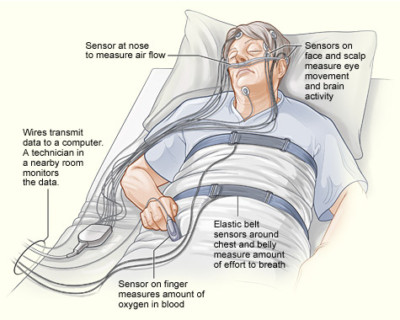
Since discovers the Pitta and Vata nigh-time cycles
What the sleep research is showing now is that between 10pm and 2am a system in the brain called the lymphatics comes into play – and the lymphatics is made of glial cells – and during these first four hours the glial cells shrink dramatically to less than 60%, down to 40% of their normal size. So, that opens up channels throughout the brain, which now flushes brain fluid through the brain at 20 times the natural flow. This acts like a power hose, cleaning up all the debris from around the nerve cells. All that is cleaning out the brain for better function the following day.
At the same time, the recent memories from the day’s experience which are in a lower part of the brain called the hippocampus, on both sides – one on each side – that gets transmitted up to the cerebral cortex, the top of the brain, for permanent storage. We’re transferring short-term to long-term memories during this four hours.
That would be all in terms of Pitta from an Ayurveda point of view, the renewal, the transformation back to a balanced state. Pitta is involved with processing the memories, so that would all be in terms of Pitta.
Now, the next four hours are equally important and equally necessary for us to sleep, because we’re now moving from deep sleep stage – stages three and four sleep, which we have a lot more of in the first four hours – and in the second four hours we’re moving more towards dream sleep, REM sleep, which is much more prominent in these four hours.
During this time, the memories that you have put in place into long-term memories now get integrated with life’s experience. Out of that process comes your capacity to see patterns, to understand the holistic perspective of it, and to become very creative with it and to have fresh insights, which is much more a Vata phenomena.
Sleep and the emotional brain
The other thing that happens during these four hours is that the limbic system – the location for emotion in the brain – has begun to act on its own after a day’s activity, and the channels connecting it to the frontal part of your brain, who is the managing director if you like, they get disrupted. This last four hours of sleep sorts out that connection, so that the frontal areas of your brain are remaining in charge of your emotions.
If you haven’t got the full four hours however, you’re going to be a little bit more primitive in your emotional responses, a little bit more emotionally unstable, and possessed by your emotions rather than having the emotion integrated by the frontal portions of the brain.
Again, we see how significant it is to get that work done, so that during the day to come we have a good emotional IQ and more creativity and a clearly functioning nervous system which has been balanced by a good night’s sleep, and a settled sympathetic nervous system, so that we’re not getting increasingly excited.
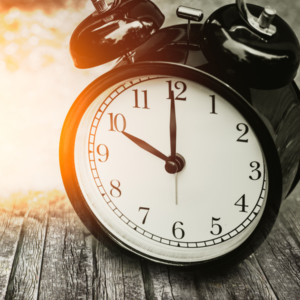
8 hours of renewal and replenishment and integration
All these discoveries as to the great and amazing work that goes on in our nervous system overnight, it’s a very busy, active time of renewal and replenishment and integration of our experience.
Peter Brown: Scientists would be very interested in this idea of the Pitta sleep and the Vata sleep between 10pm at night and 6am in the morning. Ayurveda emphasises trying to get to bed before 10pm so that we’re asleep by 10 so that we have those four hours between 10pm and 2am for purification and also processing, which are the two functions of Pitta. We’re then having the integrative type of associations during the 2am until 6am, which is the Vata time.
Dr Donn Brennan: At that period, the sympathetic nervous system is getting more and more switched off, which means more and more settled and relaxed.
Peter Brown: You need all this period of time for that to happen?
Dr Donn Brennan: Yes.
Peter Brown: At least those eight hours.
Lack of sleep causes more traffic accidents than alcohol
Dr Donn Brennan: Yes. That’s why it is very critical issue that our culture doesn’t get enough sleep. People aren’t performing. They may think they are, but they’re not performing anywhere near their potential. They’re leaving themselves open to poor responses and mistakes and accidents, because without the eight hours then people start to catnap through the day for three to five second periods. They don’t even realise it’s happening, but they have gone asleep.
That is now considered to be a far more significant cause of road traffic accidents than alcohol. It’s recognised that at least if you were drunken driving, you may have some attempt at a rescue at the last minute to prevent the accident, which lessens its impact, whether you manage to get the slow-moving foot onto the brake. But with sleep there’s no response. The accidents happen 20 miles-an-hour faster.
It’s just one area in which we see that the lack of full sleep, and the recognition of the need for us to have eight hours, is having a huge impact culturally.
It’s also interesting to recognise how much sleep is disrupted in our culture. For many people who hear all of these great works that go on during sleep, up to maybe one-third of people at some point are insomniac or sleep disturbed, and then they think, “Well, I can’t sleep.” I think there’s a number of features in our culture that contribute.

Our natural triggers went missing
Sleep specialists will point to the reality that traditionally we didn’t have light, and the lack of light became the trigger for our melatonin, which after dusk started to climb so that the melatonin would switch us off into sleep come 10pm.
That no longer exists for us because of all the ambient light that we’ve created. And particularly light in the blue spectrum, which is the lowest energy light, which is the one that therefore your phones and your computers operate efficiently on. They switch off your melatonin so people, even if they get to sleep, having used computers or mobile phones before bed, the quality of their sleep has been interrupted.
That’s one reason for disturbed sleep and another reason is it used to be the temperature dropped after dusk. That temperature drop is a natural precursor for sleep and brings on sleep. With our central heating systems, we never tend to have that temperature drop anymore. Those natural triggers are absent in our culture, which may be contributing to more sleep problems.
Taking it from an Ayurveda point of view, our Vata is totally disrupted, because we don’t schedule enough rest. So, rest and the lack of it at night is going to leave our Vata increased during the day.
We start the day more hyperactive anyway, and we get more hyperactive as the day goes by. Particularly with the fast pace of living and the extremes of stimulation, then the Vata is disrupted by about 4pm in the afternoon. That then causes us to have difficulty settling down at night for sleep, and even if we do, we tend to wake up during Vata phase of the sleep, because Vata is too busy and we’re waking up.
It’s not too surprising, considering how we structure our lives, that there would be a lot of sleep disruption.
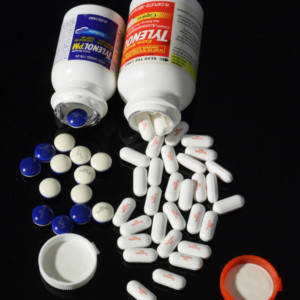
Sleeping tablets and sedation
Dr Donn Brennan: You see it’s a very interesting insight, because people think, “Oh, I’ve a sleep problem. I’ll pop a tablet.” Now, sleeping tablets do not create sleep. What they create is sedation, and sedation is not a replacement for good quality sleep. It just is a sort of a comfort to somebody that they felt, “Well, I was unconscious.” Being unconscious unfortunately is not the same, and so the sleeping tablets are a waste of time in giving you the quality of sleep that you actually need. It gives you some comfort that you were not agitated through the night. That’s about what they give you, but they have side effects.
Peter Brown: What exactly happens with sleeping tablets when it comes to the brain?
Dr Donn Brennan: Sedation.
Peter Brown: Sedation. Does that mean that the processing that you would expect, and the purification and flushing of the brain, isn’t going to be happening because the brain isn’t active in the way that it should be?
Dr Donn Brennan: Exactly. It’s not doing the functions of sleep. Only insofar as some sleep may happen during the night.
Peter Brown: Some rest is there in the muscles I suppose?
Dr Donn Brennan: No, it must be that we sleep. If we didn’t sleep, within six weeks we’d be dead. Sleep is that critical. Deprive someone of sleep and it’s … The Guinness Book of Records have now banned people trying to achieve a record for non-sleeping, because it’s so dangerous.
It’s not that insomniacs don’t sleep; they must do. But it’s that they don’t get enough, and they don’t feel the quality of it to be deep enough. Still, some of the functions must be happening; but they’re not happening through the sleeping tablet, they’re happening despite it. All that the sleeping tablet is doing is knock out our awareness so that we’re not consciously tossing and turning all night.
It’s very difficult for people to tolerate discomfort and agitation every night, when they’re not sleeping. But you’d be better off using natural approaches to quieten you.

Get yourself unwired
You see that’s the problem – people want a pill going to bed to put them asleep, when they’ve spent the whole day wiring themselves up. And that’s why they have to take the whole Ayurvedic perspective into consideration.
Having a really good routine, because that settles Vata. Having restful meals, because that at least gives their body a chance to relax through the day. Doing an oil massage, because that’s a very sublime way of quietening and settling and integrating the Vata. And regular Transcendental Meditation is one of the best ways of settling Vata.
It’s to reach a critical mass of balance for Vata that allows the mind to be able to settle.
Pitta and Kapha sleep problems
Ayurveda recognises that [Vata disturbance] might be the commonest sleep disturbance, but Pitta can disrupt sleep too. Because we don’t get a sufficient temperature drop [at night] and people who are quite Pitta and hot in nature find this interferes with their depth of their sleep. They tend to wake up about midnight. So, they need to balance their Pitta for proper quality of sleep.
Then there’s the Kapha sleep disruption, where the quality of sleep is not sufficient to leave one feeling refreshed the next morning, but rather very dull, heavy, sluggish, unrefreshed the next day. This is a Kapha sleep problem.
You have to deal with the Vata to get to the Kapha for a better overall balance, and then you could start to orientate your thinking about how do you support your sleep.
Are you hot or cold at night?
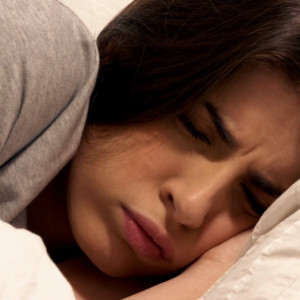
Peter Brown: The other weekend we talked to people on the stall [we had on Ayurveda] at Alderley Edge and lot of people talked about their sleep. They talked about lack of sleep or problems with sleep. Some people were very clearly having Vata sleep problems, because they would be waking up at anywhere between 2am and 4am, early morning and they would be feeling agitated and not being able to go back to sleep, and worried, and so on. Whenever I noted, “You’ve got a lot of Vata [in the Ayurveda body-type questionnaire they filled in], how is your sleep?” They said, “Not so good.” They’re getting up in the early hours. Other people were saying, as you say, it’s roundabout 1pm in the morning or so on.
Now, sometimes it can be hard to differentiate whether it was a Vata or Pitta that’s causing them to wake up, apart from the time when they wake up, whether it’s midnight, or 2am or 4am in the morning? What would be the feelings of somebody who was having a lot of Pitta disruption?
Dr Donn Brennan: Hot.
Peter Brown: They would be feeling physically hot?
Dr Donn Brennan: They’d wake up hot. They’d be throwing off blankets. They’d be thinking about getting out to cool down. They would feel quite hot and irritable. Whereas Vata may be more aware of actually feeling the cold. But the timing is very significant; someone can have two duvets on and wake up hot and still have a Vata problem.
If the bedding is appropriate then at that point the Pittas should be appropriately soothed in their temperature, but they still in themselves feel hot, and the Vatas feel cold. Even though they basically have enough bedclothes, they’re still cool.
Night-time emotions
Peter Brown: Is there something about the quality of feelings and emotions as well which is different between somebody who is a Vata, and waking up in the middle of the night, and somebody who is a Pitta?
Dr Donn Brennan: Yes, Vata people will always tell you that they just couldn’t believe the next morning when they were getting up what they were worried about during the night. It was so illogical, so over the wall. It’s interesting, how Vatas create all sorts of creative anxieties and obsessions.
Peter Brown: Creative anxieties; that’s good.
Dr Donn Brennan: Obsessed right through their wakefulness. Pitta won’t have that degree of anxiety, and they’ll just be maybe annoyed more.
Peter Brown: Yes, annoyed that they’re not asleep. I heard somewhere that feelings of energy in the system, just feeling energised … would that be a Pitta feeling?
Dr Donn Brennan: It’s difficult to know, because with Vata you can feel hyper-excited and the sense of an excess of energy. I don’t know. I’d have to know the quality of the energy and the description of it that they’re feeling to maybe interpret that.
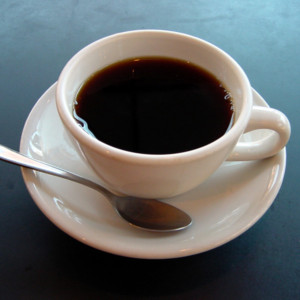
Going to the loo at night
It’s a natural function, particularly in a Vata time of life between over the ages of 50 to 60, that Vata causes people to wake up when they need to go to the loo.
That’s all right, because we have that 90-minute cycle where we go deep, deep, deep, and then we come back up and dream, dream, dream where we’re very superficial. Then we go back into the next cycle of deep sleep and that takes about 90 minutes.
When people tend to wake up to want to go to the toilet, it’s at the top of the cycle, and they can generally just go out to the toilet and get back in the bed and they’re straight back to sleep. They don’t have a sleep problem.
The influence of coffee and TV
Be particularly aware that when caffeine is taken in the middle of the afternoon, half the caffeine is still in your blood at night to wake you up at 4am in the morning. Caffeine should be confined to the morning time, for anybody who has any delicacy about sleep.
Then cultivate the routine if settling down in the evening with some quiet activities, not television. The bedroom should be neat and comfortable and used for sleep, not for other purposes like watching television or studying or something. The association of the bed should be sleep. Just cultivating an evening routine that is very inducing to sleep, and keep that regularity.
Sleep and our evening meals
Peter Brown: What about the eating? A lot of people these days eat their main meal 7pm, 8pm in the evening.
Dr Donn Brennan: That’s because this society is chasing the money, and the money is more important than their health.
The tradition was always a big meal in the middle of the day. We digest better in the middle of the day. We weren’t designed to digest at night. The body is designed to heal and clear itself up in the night. If you’re putting in a whole lot of food, you’re deflecting the body into digesting and metabolising all that nourishment at a time when it should be quite opposite – cleaning itself out and removing the toxins for elimination the next morning when we get up.

It’s just not wise, not right, not natural. People then complain that that’s their social time. You can be social over soup, and it’s just they’re in the habit of it and they feel it’s right.
Well, they might feel it’s right if they’re in the middle of a Pitta time of life and they can get away with it, but as life moves on and their digestion is not as powerful, they will suffer, and they will need to change.
Peter Brown: A good evening meal would just be some vegetable soup and a piece of toast or some crackers or something like that?
Dr Donn Brennan: If someone was hungry. If they weren’t hungry, why are they eating?
Generally something very light in the evening is sufficient. That’s predicated on the reality of a decent, honourable bedtime, as opposed to an unnatural late night, because Pitta comes up between 10pm and 2am, and if you’re up, and about, and active, yes, you’ll start to feel hungry again.
But it’s not a time actually for a midnight feast. It’s actually a time for healing and clearing. You ought to have been in bed. Pitta people will argue until they’re blue in the face that they’re late night people. If you took away electricity, they’d discover they weren’t.
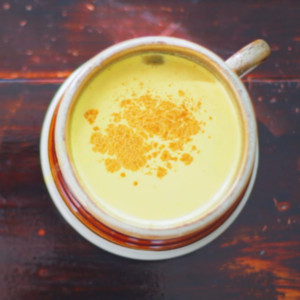
Bedtime drinks (instead of late night food)
Peter Brown: Because people do go into cycles don’t they, which may be unnatural cycles.
Dr Donn Brennan: Yes, because Pitta people feel their Pitta come up, they feel energy, they feel vitality, so they want to become active again, because they think that’s when they’re most creative, or whatever. They feel all of that internally, but it’s not about cleaning the house and doing a day’s work.
It’s actually about internally cleaning your house and doing the work of renewal in your own body. That’s why you feel the energy and they should go with that. In the same way Ayurveda would suggest, if there is a bit of hunger, that you have a hot milk drink at night, because that’s very somniferous. Particularly a little nutmeg in a hot milk drink is very soothing for a night’s sleep; but it could be a camomile tea.

Herbals for blissful sleep
There are Ayurvedic herbals specifically for sleep in the Maharishi Ayurveda range. There’s the Blissful Sleep Basic, which will be the first port of call and to take one or two of those in the evening. Now, it’s also refined in that if you recognize you’ve a Vata or a Pitta problem with sleep, you can also add in the Blissful Sleep Vata and Pitta tablets, because they will sort out the Vata and Pitta.
Peter Brown: Why take Blissful Sleep Basic along with them?
Dr Donn Brennan: Different herbs with a slight different orientation. One [Blissful Sleep Basic] is just more settling, quietening, integrating, more perhaps switching off the sympathetic nervous system and switching on the parasympathetic. The others [Blissful Vata/Pitta and Kapha] are more nuanced in terms of the Doshas. You’re taking a two-pronged approach really.
Peter Brown: The Kapha sleep pattern is interesting, because Kaphas usually sleep quite solidly. So, the Kapha one for sleep, is that more to do with the purification process? Because people who’ve got too much Kapha, often waking up feeling heavy, maybe there’s Ama within the body, too much Kapha within the body.
Dr Donn Brennan: And Ama within the mind. The herbs there would be stimulating the processes of clearing the Ama, the toxins.
Peter Brown: Clearing Ama from the brain, Ama from the body.
Dr Donn Brennan: And also stimulating the processes of the brain itself to be more lively. Lively in the activity necessary during sleep of renewal.
Peter Brown: When we’re talking about purification, it’s more than just physical purification. It can be purification of ideas that we don’t need.
Dr Donn Brennan: When you’re thinking, you can’t just think in terms of purification, what you also then think of is the Agnis or fires which do the cleansing. You’re stimulating metabolisms not only to purify but to create more energy.
The herbals in the Kapha blend [Blissful Sleep Kapha] will be more of that vein, clearing Ama, but also stimulating Agni, our transformation serum.
DISCLAIMER: The information in this document is presented for the sole purpose of imparting education on Maharishi AyurVeda and neither the information nor the products are intended to diagnose, treat, mitigate, cure or prevent any disease. If you have a medical condition, or are pregnant or lactating, please consult a health professional and it is recommended that you speak with your physician before making significant changes to your diet or routine.

